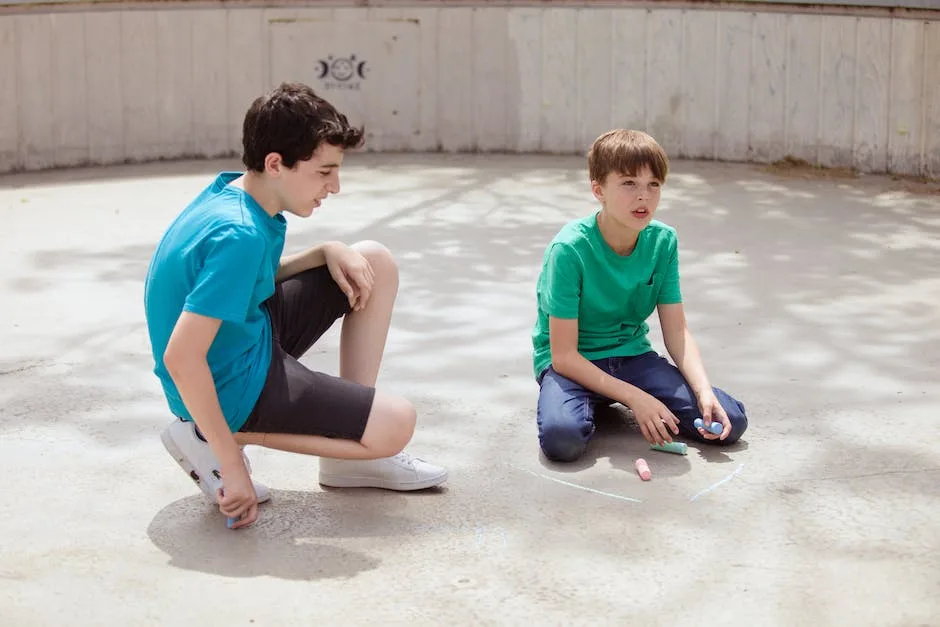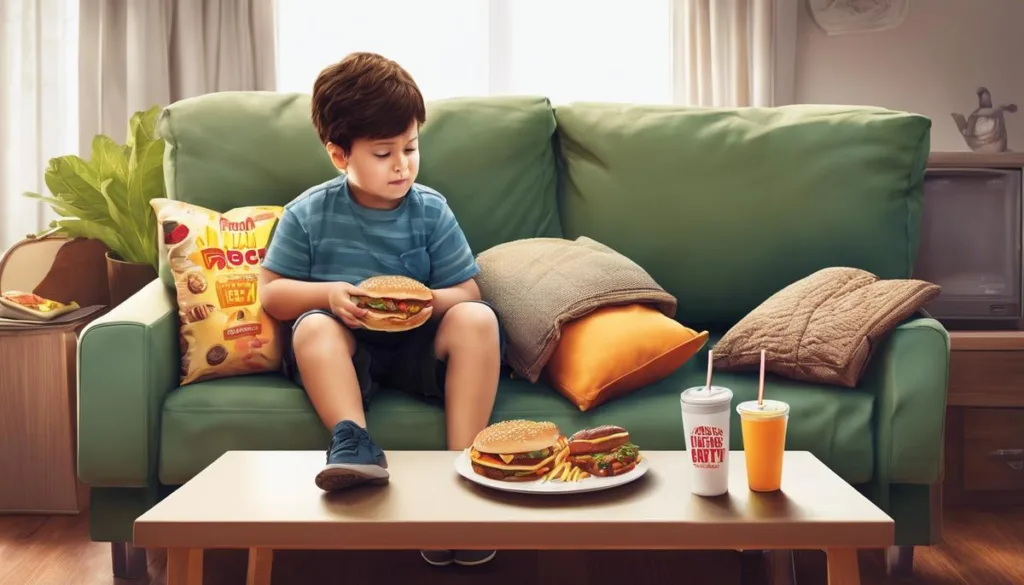We face an escalating childhood obesity epidemic, with rates tripling over the past 30 years. This poses alarming health and social consequences for generations to come. However, through early intervention and comprehensive lifestyle changes, we can alter this trajectory to set up kids for healthy, thriving futures.
Pediatric weight loss clinics provide all-encompassing care to help children and families implement positive behaviors around nutrition, fitness and wellbeing. These facilities take a big picture perspective, addressing root causes of obesity rather than just the number on the scale. Their holistic approach focuses on sustainable healthy living over quick fixes or extreme diets.
Read on to learn six awesome, powerful ways pediatric weight loss clinics can make a real difference in nurturing kids toward lifelong health and success.
Holistic Approach for Optimal Wellness with Pediatric Weight Loss Clinics
Pediatric weight loss clinics focus on the complete physical, social, emotional and mental wellbeing of children rather than simply targeting pounds to lose. Their comprehensive, holistic programs help kids thrive in all aspects of health.
Some key elements of their whole-person approach include:
- Assembling a Collaborative Team of Experts
Multi-disciplinary care teams often consist of pediatricians, nurses, registered dietitians, mental health counselors, exercise specialists and more. These experts design coordinated plans tailored to each child’s unique needs and challenges. Rather than offering fragmented, unintegrated care, they align treatment across disciplines for consistency. - Engaging the Entire Family
Parents and caregivers play an enormous role in shaping children’s habits and environments. So clinics emphasize educating families on creating healthy lifestyles at home. Caregivers participate actively in programs so positive changes can be sustained over the long run. - Setting Health-Focused Goals
The primary aim is developing balanced nutrition and active fitness regimens – not chasing ideal body mass indexes or clothing sizes. Care teams track biometric markers of health rather than just pounds on a scale. Small consistent lifestyle changes get celebrated as “wins” on the path toward wellness. - Responsive, Individualized Planning
No two children’s needs are exactly alike. So clinics start by thoroughly assessing each child’s and family’s unique barriers and opportunities. Care teams check in regularly to gauge progress, adjusting approaches when appropriate. This ensures the programs evolve developmentally as kids grow.
With whole child health prioritized over quick fixes, pediatric weight loss clinics set the stage for nourishment and wellness now and throughout maturation.

Demystifying Childhood Nutrition for Families
What children eat fuels their growth, development and disease risk for life. Clinics provide families with sound, evidence-based nutrition guidance to bust myths and promote positive food relationships.
Some of their most helpful educational offerings around diet include:
- Clarifying Appropriate Calorie Intake
Many parents enforce restrictive diets that inadequately fuel children’s growth. Clinics explain optimal caloric intake at different ages/stages of development, emphasizing balanced moderation over restriction. - Explaining Healthy Dietary Fats
Fear-mongering around fats leads some families to drastically limit heart-healthy fats kids require. Clinics clarify which fats support health in appropriate portions. This prevents needless deprivation. - Collaborating on Meal Planning
Clinics partner with parents and kids to develop regular family meal plans that accommodate preferences while optimizing nutrition. Children participate in shopping/preparing special dishes to invest them in the process. - Making Healthy Eating Enjoyable
Rather than forcing kids to choke down foods they dislike, clinics brainstorm tasty alternatives. The goal is learning to savor nutritious whole foods in sensible portions. Food becomes nourishment to enjoy rather than fear.
With guidance from pediatric nutrition specialists, families gain knowledge and skills to nurture children’s health for the future through positive food relationships.

Fostering Engaging Physical Activities for Kids
Along with sound nutrition, regular activity plays a pivotal role in managing kids’ weight, energy levels and disease risk. Clinics craft creative fitness regimens suitable for children’s abilities and interests.
Their stimulating exercise programs focus areas like:
- Tailoring Activities to Age
Programs balance aerobic, strength and flexibility training in child-friendly formats. Younger kids do more play-based movement like games and dance. Pre-teens ramp up endurance activities and sports they enjoy as attention spans lengthen. - Inserting Incidental Movement
Kids accumulate small bursts of activity via everyday tasks like active chores and games rather than just structured gym sessions. Clinics help families insert 5-10 minute movement breaks between sedentary activities. This boosts calorie burn incrementally without demanding lengthy workout blocks. - Overcoming Obstacles
From lengthy schoolwork to crowded extracurricular schedules, barriers prevent many kids from daily activity. So clinics strategize individually on carving out realistic windows for exercise. They offer tricks like active academics, converting chores/transport into exercise etc.
With clinics’ guidance, families implement engaging fitness regimens promoting strength, confidence and healthy weight management rather than viewing activity as a chore.
Addressing Emotional Health and Body Image
Pediatric obesity often damages psychological health and self-image. Children may face bullying, depression or poor body image needing compassionate support. So clinics incorporate emotional health strategies including:
- Screening for Related Mental Health Issues
Weight and psychological issues frequently occur concurrently, fueling each other. So care teams administer mental health screenings for conditions like depression and anxiety that often link to obesity. Treating these issues together facilitates overall health gains. - Fostering Resilience and Self-Worth
Children gain constant encouragement to build confidence and view setbacks as learning opportunities. Focus stays on effort rather than criticizing mistakes. This motivates kids to internalize positive messaging that drowns out bullies. - Promoting Size Acceptance
Care teams emphasize that healthy bodies naturally come in all shapes and sizes – and all deserve respect. The priority becomes developing healthy new routines versus judging appearances. This encourages body positivity and resilience.
By making emotional health an equal priority alongside physical goals, clinics empower children’s confidence, self-image and success. Compassionate support builds coping skills to navigate societal appearance pressures.

Rallying Community Support
Because children spend considerable time in school and community settings, Clinics make engagement beyond clinic walls a priority. Community initiatives include:
- Educating School Communities
Clinics conduct seminars updating teachers, nurses, cafeteria staff and coaches on recognizing childhood obesity, sensitively addressing it and promoting wellness schoolwide. This reduces bullying and nurtures understanding. - Workshop for Community Organizations
Doctors and dietitians speak with groups like sports teams, scouts and camps about the childhood obesity crisis and healthy habits they can encourage. They provide free educational materials on nutrition, fitness and self-esteem. - Leading Support Groups
Facilities host informational meetings and workshops where families struggling with childhood obesity share advice, resources and encouragement. This fosters a culture of acceptance and accountability outside clinic walls.
Broad community engagement fosters environments where children’s health gets prioritized over appearance, building kids up on their wellness journeys.

Tracking and Tweaking Care Plans Over Time
Children grow rapidly as health needs change. So clinics incorporate consistent progress assessments and recalibration of care regimens. Key components that facilitate responsive care include:
- Check-Ins and Re-Evaluation
Patients undergo weigh-ins, body measurements, and lab work at regular intervals – usually monthly or quarterly. This quantifies progress. Doctors assess health markers against growth charts tailored to age, height and developmental stage. - Recalibrating Goals
As children achieve wellness milestones, care teams reset goals to propel continual improvement. If progress stalls, they reexamine potential obstacles and modify plans accordingly. Maintaining feasible, meaningful targets keeps kids engaged. - Adjusting Treatment Approaches
When problems emerge or health needs evolve, care teams tailor solutions: therapy may get recommended for emerging emotional issues; medication could help regulate hormones or hunger cues; specialty referrals provide enhanced expertise. Adaptive, child-centric care enhances outcomes.
Through consistent tracking and modifications over time, clinics nurture continual advancement at each child’s unique developmental pace.
In Summary
Rising childhood obesity and associated health repercussions demand urgent action focused on sustainable lifestyle solutions. Pediatric weight loss clinics provide comprehensive tools and guidance empowering families to halt this trajectory.
Their whole-person approaches address physical activity, nutrition and emotional health in balance – facilitating weight management concurrently with social, psychological and developmental flourishing. Ongoing progress tracking with responsive care plans ensures customized, evolving support over childhood and adolescence.
If your child struggles with obesity or its effects, a local pediatric weight loss clinic may offer the all-encompassing solutions your family needs. Contact facilities in your area to learn more about the incredible benefits of their specialized programs in nurturing your child toward a future bursting with promise, vibrancy and lifelong wellness. By working collaboratively, we can build healthy kids and generations.
Thank you for reading this post, don't forget to subscribe to our free newsletter
!
